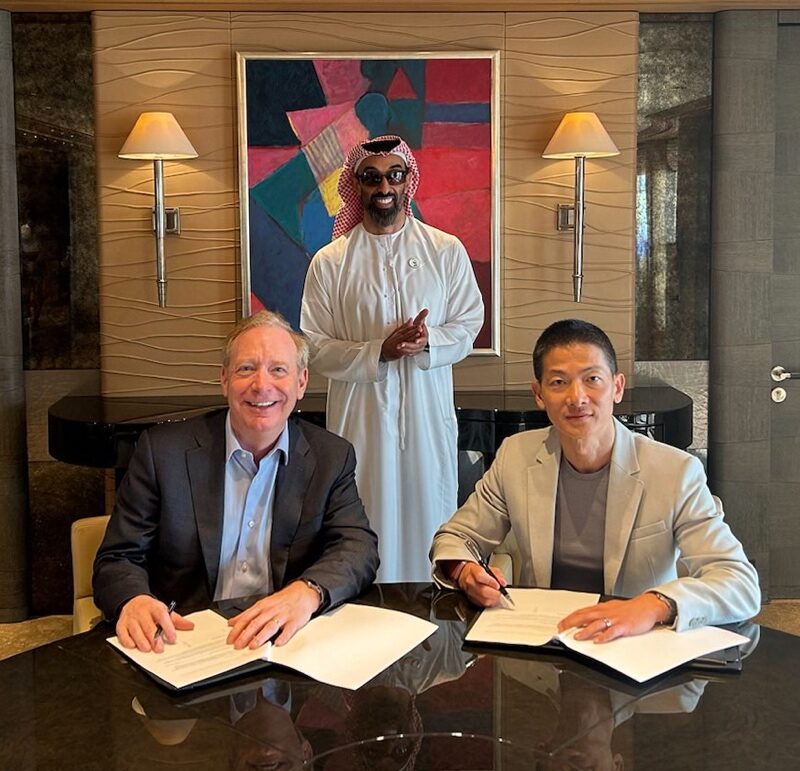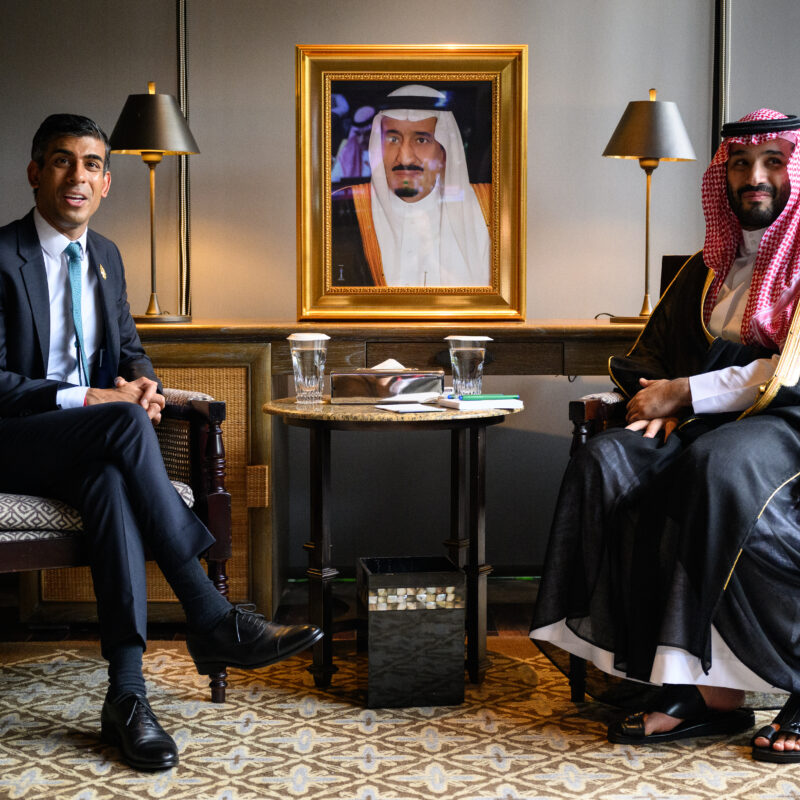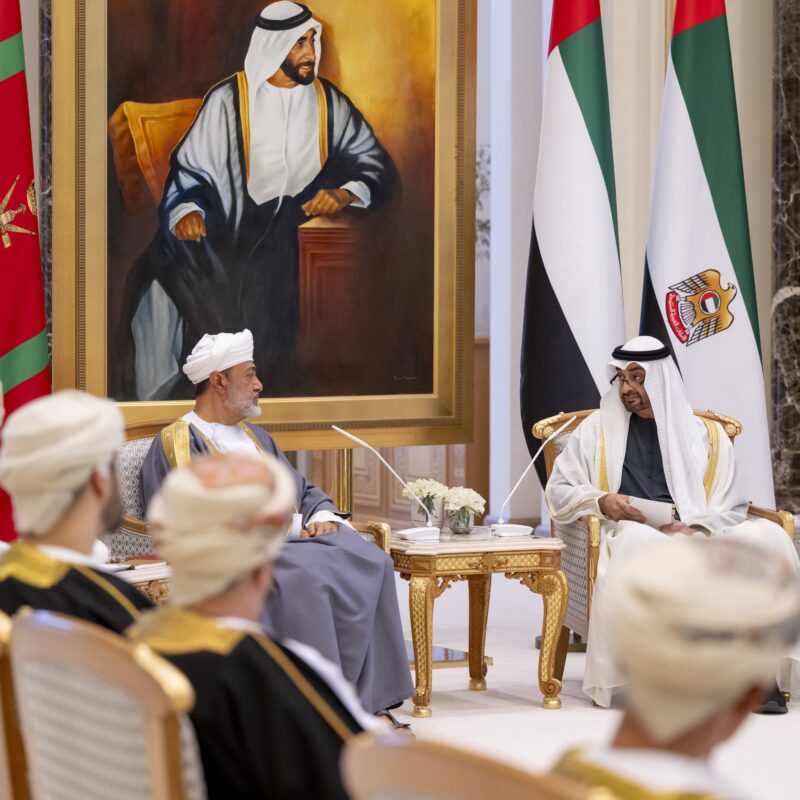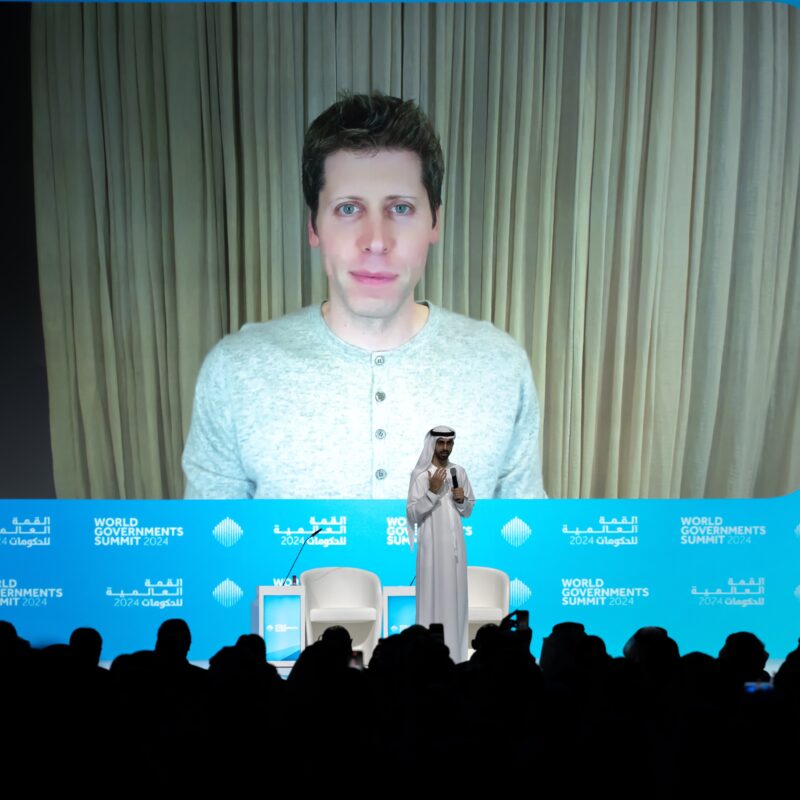Palestinian interns dodge obstacles for tech opportunities
Google, Intel, Cisco are among the companies helping young West Bank and East Jerusalem residents get software and entrepreneurship experience
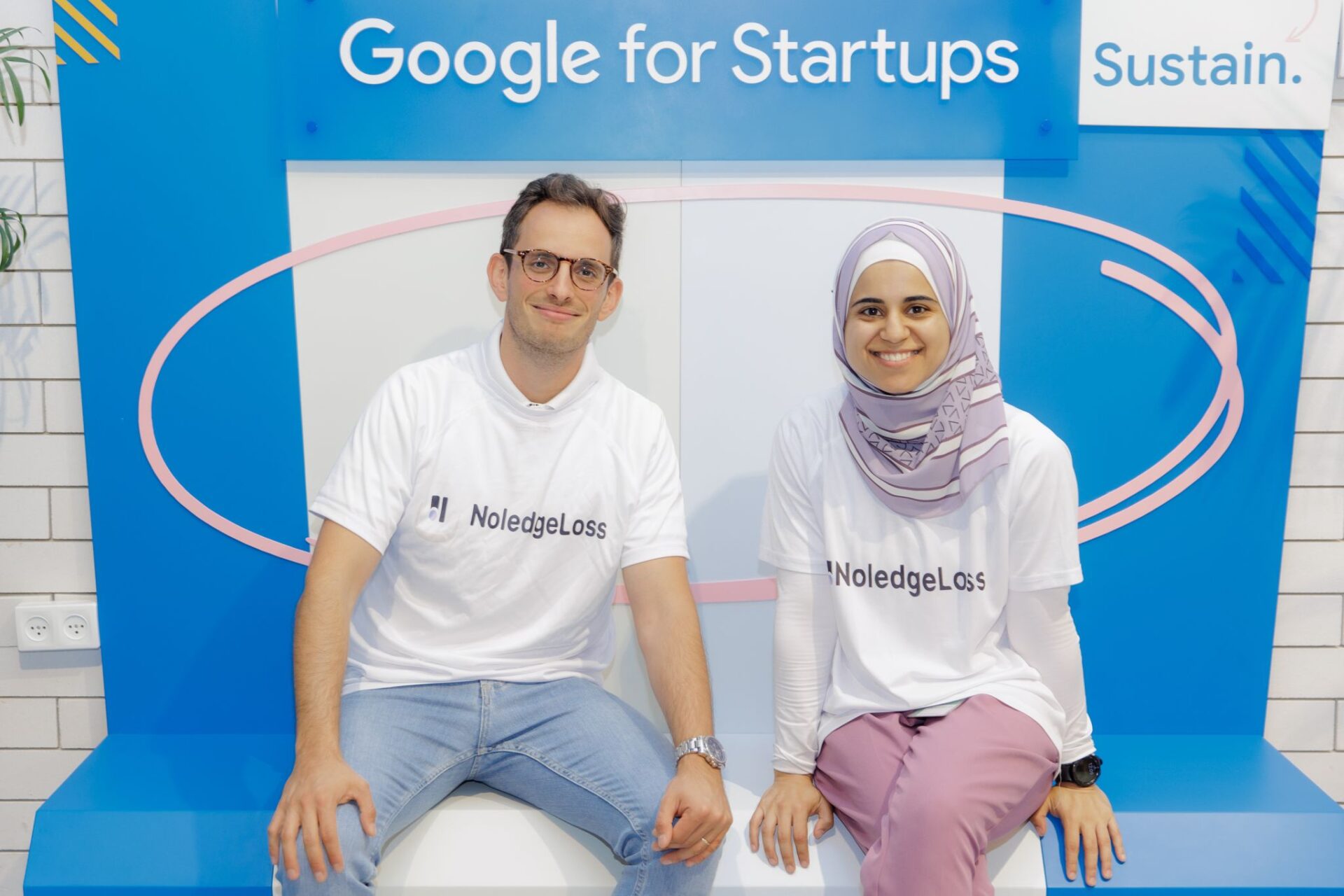
NoledgeLoss via LinkedIN
NoledgeLoss co-founders Enas Awwad and Tal Givati at Google for Startups campus in Tel Aviv
TEL AVIV, Israel – Enas Awwad, a 29-year-old Palestinian software engineer from the West Bank, credits interning at an Israeli startup four years ago with giving her many of the skills she needed to co-found a company in May.
Awwad is chief technology officer at NoledgeLoss Ltd., a developer of business productivity software that is germinating at the Google for Startups campus in Tel Aviv during its early fundraising stage. She is among the breakout stars of the Palestinian Internship Program, or PIP, an effort launched nine years ago by Israeli venture capital investors and technology firms to build peace through business partnerships.
“I am the bridge,” Awwad told The Circuit. Dressed modestly in a lavender hijab head covering, she now tries to help other young Palestinians enter the clubby and competitive Israeli tech market, which spawns more startups per capita than any other country. “I understand why they do things in certain ways and can explain it to the two sides,” said Awwad, who founded NoledgeLoss with Israeli partner Tal Givati, the CEO.
Created in 2014 by New York-born Yadin Kaufmann, a co-founder of Israel’s Veritas Capital Partners, PIP has placed paid interns at the Israeli branches of global giants ranging from Intel and Cisco to Microsoft and Google. Among the Israeli businesses employing Palestinian interns are VC firms Pitango and OurCrowd, as well as Teva Pharmaceutical Industries, Freightos and Redefine Meat.
Most recently, PIP’s leaders have been looking toward the Gulf, particularly for their affiliated mentorship program. Israeli companies have been setting up offices and forming joint ventures in the United Arab Emirates and Bahrain since the 2020 Abraham Accords. Skills the Palestinian interns acquire through PIP make them attractive local hires because of their strong technical skills and their native Arabic. Often they can work remotely from the communities where they live.
“The regional tech ecosystem is always looking for talent, and there is great Palestinian talent,” said Tally Zingher, a PIP board member and CEO of Dawsat, a weight-loss and wellness company for which Arab women are the target audience, and which has an office in Abu Dhabi.
Still, PIP’s main goal is to help the interns play a leading role in building the Palestinian tech sector by working in jobs in the Palestinian economy. The internship program and the more advanced Palestinian Mentorship Program, which aims to develop entrepreneurial skills, were designed to address the poor job prospects for Palestinians in the West Bank and East Jerusalem, who are cut off from the thriving technology climate in Israel. Participants from the Gaza Strip have participated in the mentorship program by video. More than 3,000 students graduate from Palestinian universities with technology degrees each year, but fewer than half find employment in their fields. Palestinian companies have been stymied by the political conflict with Israel, which limits international growth and investment.
That has led to a brain drain of Palestinian engineers and other tech graduates, who find themselves with a degree but no place in the West Bank to gain experience, Kaufmann said. Similarly, Israeli engineers and entrepreneurs are often lured to greener pastures in Silicon Valley. In the meantime, there are many companies in Israel that can offer fresh Palestinian graduates their first opportunities, he said. “We have developed great relationships and both partners have gained,” Kaufmann told The Circuit. “We wanted to provide them with skills, experience, and networks so they could return and help the Palestinian tech ecosystem by stimulating innovation, investment and opportunity.”
Kaufmann, who also founded Sadara Ventures to provide financing for Palestinian startups, said that PIP’s interns can create new opportunities for Israeli companies that want to expand regionally.
“In addition to benefiting from having a dedicated and talented employee, they have also benefited from having someone who can help open a window to neighboring Arab countries,” Kaufmann said.
When she started interning at Israeli startup Colabo five years ago, Awwad needed to cross through a military checkpoint from her home in the West Bank city of Tulkarm to reach the office in Herzliya, 25 miles west on Israel’s Mediterranean coast. PIP coordinated all the travel permits with the Israeli and Palestinian authorities.
Awwad’s new company, NoledgeLoss, addresses the database challenges companies face in losing information on customers and work processes when employees move to new jobs.
Another graduate of the two programs is Adnan Jaber, a Palestinian resident of East Jerusalem, who created a mobile app when he was an intern in the West Bank’s Rawabi TechHub in 2017 and later developed personal-fitness tracking software. Now he engages in what he calls “peace tech,” trying to connect Israeli and Palestinian leaders who are making efforts through business to resolve the conflict.
Jaber also manages a video production company creating videos in Hebrew and Arabic that focus on positive interaction between Israelis and Palestinians.
“I found a philanthropist, I hired a team,” he told The Circuit. “I am using production management skills, entrepreneurship skills and business modeling skills. PIP was the first to give me those skills,” he said.
In the mentorship program, which started in 2020, many participants are eager to receive guidance from entrepreneurs and executives who have experience in the Gulf and other Arab countries, said PIP’s executive director, Anna Gol-Dekel.
“The mentors we have who have done business in the Gulf are in high demand,” Gol-Dekel said. “They bring a lot of value… with insights of how to expand a business into the Arab world,” she said. “That is the No. 1 thing our mentees are looking for.”
While the internship program tries to stay nonpolitical, politics are unavoidable in a region fraught with tensions and conflicts, noted Cecile Blilious, head of impact and sustainability at Pitango, one of Israel’s oldest and largest VCs.
“Things are always tense — we can’t overlook that,” Blilious told The Circuit. “We have to consider that people are really afraid on both sides, especially with all the violence going on now, it is terrifying,” said Blilious.
“But once you overcome that,” she continued, “there is obviously business to be done, and in the end we are in high-tech innovation, entrepreneurship and ideas impact, which means something for us as people.”
Still, with the Israeli-Palestinian peace talks at a standstill for nearly a decade and violent incidents breaking out daily in the West Bank, normalization is a very loaded word in the Palestinian lexicon. Both Jaber and Awwad said people have told them they shouldn’t be associated with the Israeli-backed internship program.
“There are always people who will criticize you and people who will support you,” Awwad said. “I choose to stay with those people who offer support.”



